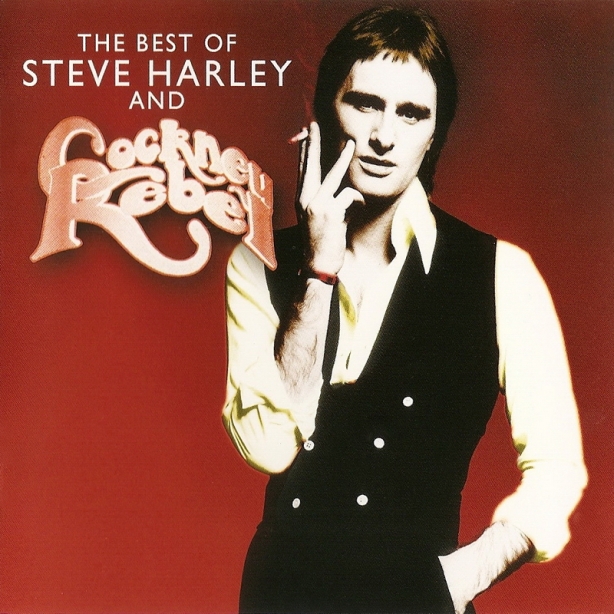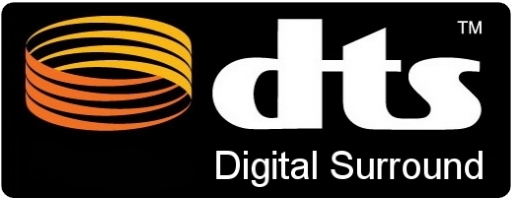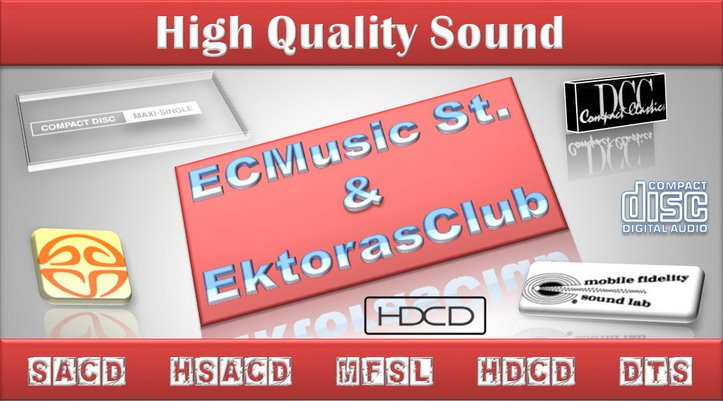
Steve Harley & Cockney Rebel – The Best Of
Steve Harley & Cockney Rebel are an English rock band from the early 1970s. Their music covers a range of styles from pop to progressive rock. Over the years they have had five albums in the UK Albums Chart and twelve singles in the UK Singles Chart.
Steve Harley (born Stephen Malcolm Ronald
Nice, 27 February 1951, Deptford, London), grew up in London’s New
Cross area and attended Haberdashers’ Aske’s Hatcham College. His
musical career began in the late 1960s when he was busking (with John
Crocker aka Jean-Paul Crocker) and performing his own songs, some of
which were later recorded by him and the band. After an initial stint as
a music journalist, the original Cockney Rebel was formed when Harley
hooked up with his former folk music partner, Crocker (fiddle / mandolin
/ guitar) in 1972. They auditioned drummer Stuart Elliott, bassist Paul
Jeffreys, and keyboardist Milton Reame-James. They were signed to EMI
after playing five gigs. Their first single, “Sebastian”, was an
immediate success in Europe, although it failed to score in the UK
Singles Chart. Their debut album, The Human Menagerie, was released in
1973. Although not a commercial success they did attract a growing
following in London.
Harley managed to irritate a significant
segment of the music press with his self-aggrandisement, even as their
music was getting rave reviews and gaining a wide audience. It was
becoming clear that Harley regarded the band as little more than
accompaniment to his own agenda, and already there were signs that
things would not last, despite having a big hit with their second
single, “Judy Teen”. In May 1974, the British music magazine, NME
reported that Cockney Rebel were to undertake their first British tour,
with the highlight of the itinerary being a gig at London’s Victoria
Palace Theatre on 23 June. There then followed the album The Psychomodo.
A session for BBC Radio 1 disc jockey John Peel, subsequently released
on the Live at the BBC album, offered up further evidence of the band’s
inventiveness. A second single from the album, “Mr. Soft”, was also a
hit. By this time the problems within the band had already reached a
head, and all the musicians, with the exception of Elliott, quit at the
end of a successful UK tour. Of his erstwhile bandmates, Crocker
returned to his acoustic and bluegrass roots to quietly hone his
songwriting skills, recording and occasionally performing (with younger
brother David) in The Crocker Brothers; whilst Jeffreys and Reame-James
were briefly members of Be-Bop Deluxe, before forming their own band,
Chartreuse, in 1976.
Harley’s next appearance on BBC
Television’s Top of the Pops was supported by session musicians drafted
in for the show. Only Elliot survived from the original line-up, with
Curved Air’s Francis Monkman, and B. A. Robertson completing the
impromptu band. Autumn 1974 brought the release of the group’s next
single, “Big Big Deal”, presumably a taster for their proposed third
album. No sooner was the record released, however, than it was
withdrawn.
From then on, the band was a band in name
only, being more or less a Harley solo project. In 1974, a further
album, The Best Years of Our Lives was released, produced by The
Beatles’ recording engineer, Alan Parsons. This included the track “Make
Me Smile (Come Up and See Me)” which would go on to be a UK number one
single in February 1975, and the band’s biggest selling hit. It sold
over one million copies globally. Amongst the backing vocalists on the
act’s only #1 was the future chart-topper, Tina Charles. Changing the
band name from Cockney Rebel to Steve Harley & Cockney Rebel for the
#1 hit, the degeneration was rapid. In a television interview recorded
in 2002, Harley described how the lyrics are vindictively directed at
the former band members, whom he felt had abandoned him – a fact not
obvious in the apparently happy chorus.
One more single from the album, “Mr.
Raffles (Man It Was Mean)” made the Top 20, but then Cockney Rebel
disbanded. After 1975, Harley struggled to match that success and faded
from fame, although he provided vocals on The Alan Parsons Project song,
“The Voice” on 1977’s I Robot. Harley also had a surprise Top 10 in the
summer of 1976 with a cover version of “Here Comes the Sun”. He made a
minor comeback in 1979 as a solo artist in the UK Singles Chart with
“Freedom’s Prisoner”. After a brief appearance in the 1980s with a song
from Andrew Lloyd Webber’s The Phantom of the Opera, Harley began
touring again with his old Cockney Rebel songs in the late 1980s and
1990s.
Cockney Rebel’s original bassist, Paul
Jeffreys, was one of those who died on Pan Am Flight 103 in 1988. He was
with his bride on their honeymoon. In April 1990, Harley and several
ex-Cockney Rebel members reformed as Raffles United, and played four
consecutive nights in a pub in Sudbury, London.
Harley has released several solo albums
since – Yes You Can in 1992, Poetic Justice in 1996, and most recently,
The Quality of Mercy in 2005, the first since the 1970s to be released
with the Cockney Rebel name. He has dubbed his current touring band
‘Cockney Rebel Mark III’ – although the band contains only two original
members in Harley and Elliott.
Two of the bigger hits appeared in UK
television advertisements in the 1990s: “Make Me Smile” for Carlsberg
Lager in 1995, prompting the track’s return to the UK Top 40; and “Mr
Soft” for Trebor Softmints in 1988. “Make Me Smile” was used again in a
2005 advertisement for Marks & Spencer. It was also used on the
soundtrack of the 1997 film, The Full Monty and the 1998 glam rock film
Velvet Goldmine, in the latter’s case being used in the end credits.
From 1999 to 2008, Harley presented a show on BBC Radio 2 called Sounds of the 70s.
In 2006, EMI released a CD box set compilation album spanning Harley’s Cockney Rebel and solo work.
In 2006, EMI released a CD box set compilation album spanning Harley’s Cockney Rebel and solo work.
On 25 July 2007 they performed in Warsaw,
Poland and on 28 July 2007 in Saint Petersburg, Russia, in both cases
opening The Rolling Stones’ concerts.
In 2007, the song Make Me Smile was used by the Norwegian national lottery Norsk Tipping in a popular TV commercial in Norway.
Original keyboardist, Reame-James, has
since joined with James Staddon, Phil Beer and Robbie Johnson to create
‘Banana Rebel’, who have released a CD Top Banana, available from their
website.
In 2010, Steve Harley and Cockney Rebel begin tourring again setting concert dates for England, Ireland, and Northern Ireland.
| EC0970 | Steve Harley & Cockney Rebel – The Best Of |
| Label: | EMI Gold |
| Catalog#: | 50999 227252 2 6 | UK: 227 2522 |
| Format: | CD [Compilation] |
| Made in: | U.K. |
| Released: | 2008 |
| Barcode: | 5 099922 725226 |
| Style: | Rock, Pop, Art Rock, Glam |
============================================================================
Steve Harley & Cockney Rebel – The Best Of
============================================================================
1. Make Me Smile (Come Up And See Me)
2. Judy Teen
3. Here Comes The Sun
4. I Believe Love’s A Prima Donna
5. Best Years Of Our Lives
6. Another Journey
7. Freedom’s Prisoner
8. Tumbling Down
9. Mr Raffles (Man It Was Mean)
10. Roll The Dice
11. Psychomodo
12. Mr Soft
13. White White Dove
14. Sebastian
15. Love Compared With You
16. I Can’t Even Touch You Total Time: 01:09:27
1. Make Me Smile (Come Up And See Me)
2. Judy Teen
3. Here Comes The Sun
4. I Believe Love’s A Prima Donna
5. Best Years Of Our Lives
6. Another Journey
7. Freedom’s Prisoner
8. Tumbling Down
9. Mr Raffles (Man It Was Mean)
10. Roll The Dice
11. Psychomodo
12. Mr Soft
13. White White Dove
14. Sebastian
15. Love Compared With You
16. I Can’t Even Touch You Total Time: 01:09:27
Companies, etc. ▼
Marketed By – EMI
Distributed By – EMI
Phonographic Copyright (p) – EMI Records Ltd.
Copyright (c) – EMI Records Ltd.
Manufactured By – Optimal Media Production – A837602
Credits ▼
Product Manager by – Steve Wooof
Artwork by -Hugh Gilmour
Notes ▼
Marketed and distributed by EMI. Printed in the EU.
℗ 1999 The copyright in this compilation is owned by EMI Records Ltd.
© 2008 EMI Records Ltd.
Made in the EU.
Barcode and Other Identifiers ▼
Barcode: 5 099922 725226
Label Code: LC0542
Rights Society: SDRM BIEM
Matrix / Runout: manufactured by optimal media production A837602-01
Mastering SID Code: ifpi L573
Mould SID Code: IFPI 9723








No comments:
Post a Comment